Driving commercial and political engagement between Asia, the Middle East and Europe
Driving commercial and political engagement between Asia, the Middle East and Europe
Driving commercial and political engagement between Asia, the Middle East and Europe
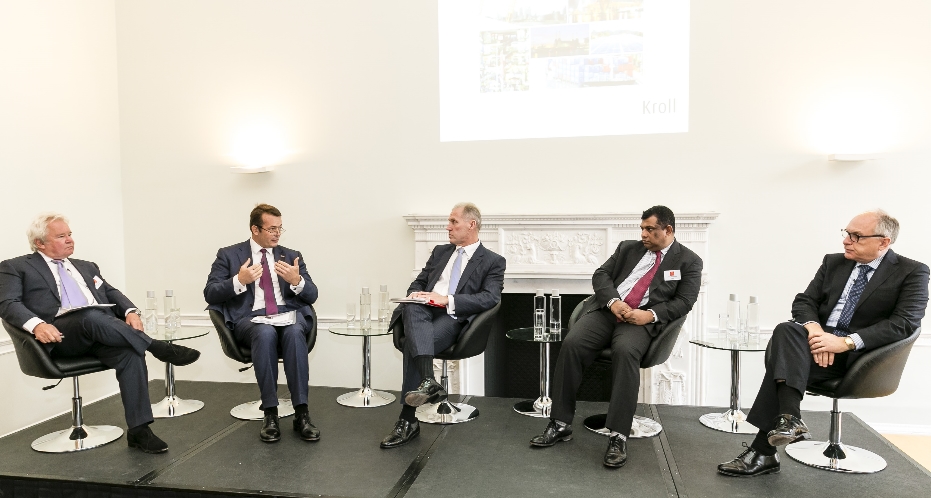
Southeast Asia’s rising middle-class offers untapped opportunities to British companies but many are not aware of the region’s demographic dividend, growth prospects and opportunities.
For those UK companies already in the region, different trade barriers and regulations in each ASEAN (the Association of Southeast Asian Nations) member state, widespread corruption and often a lack of consultation between national governments and businesses on new policies, are creating some hurdles to expansion, some of which could be eased by greater integration of the bloc.
Meanwhile the UK is considered an easy place to do business by many ASEAN businesses, but the British Government could do much more to attract investment in sectors other than property.
These were some of the comments made at the session UK-ASEAN two-way investment held during the UK-ASEAN Dialogue at Asia House, the purpose of which was to discuss UK investment in ASEAN and ASEAN investment in the UK.
“Property has been the big draw into the UK, foolishly football clubs also,” joked AirAsia Group CEO Tony Fernandes, who, in 2011, became a majority stakeholder in Queens Park Rangers F.C. and Chairman of QPR Holdings Ltd. But of late QPR’s fortunes have been mixed: the club was relegated from the Premier League earlier this year and is currently 10th in the Championship League.
The Malaysian entrepreneur explained that ASEAN businesses were investing in property in the UK but there were other sectors they could invest in.
“The challenge now is to go beyond property and asset-based investments. We ourselves have looked at technology, cars etc. Business owners here [in the UK] should look at inward investment from ASEAN in other sectors like manufacturing and technology,” he said.
“I see technology as being one of the biggest drivers of bringing in inward investment to the UK. But [UK] government officials always focus on property and infrastructure and I think UKTI (UK Trade & Investment) and others may need to shift their thought pattern. There is a phenomenal amount of British brands that have enormous potential to expand in a market like ASEAN,” he added.
Fernandes added there was an responsibility on overseas businesses entering ASEAN, as much as domestic companies, not to be corrupt. “To be corrupted you need to be corrupt. It takes two to tango. I have seen it in many industries where foreign companies are engaging agents who are encouraging some of this corruption, so I think good governance starts with the companies who are coming in as well,” he pointed out. He also questioned whether foreign governments did enough to respond to the misdemeanours of some ASEAN governments.
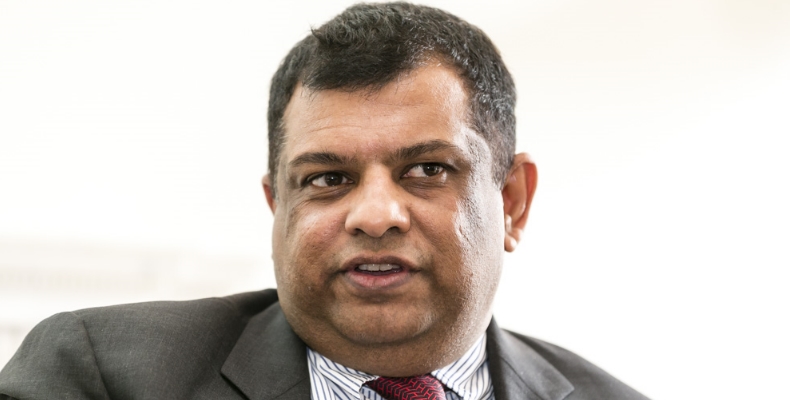
Tony Fernandes, Group CEO of AirAsia, said: “I have seen many foreign companies engaging agents who are encouraging corruption.”
He then touched on the importance of the tourism sector and how greater ASEAN integration could boost that. “Unlike in the EU, in ASEAN you have to potentially get 10 tourist visas. But the cost and difficulty of moving between those countries is enormous,” he said.
In response to a question from a member of the audience, he said: “Whether the UK is in EU does not worry me. I think Britain would be making a mistake pulling out of the EU, but in terms of investment decisions, I don’t think it would make any difference to most people in ASEAN coming in.”
But he went on to say: “I’m a big fan of the EU and I think ASEAN can learn a lot from the EU.
“I am a big fan of economic unions. Obviously Europe is not a perfect model. I think history has shown that most economic unions have created more jobs, less costs to business etc.”
He pointed out that he had been pushing the idea of an economic union in ASEAN “hard” with CIMB’s Nazir Razak “and others.” Instead of dealing with 10 different regulations in 10 different countries, if an international firm just had to deal with one set of clear regulations, it would bring down the cost of business dramatically, he said.
“We still face unnecessarily restrictive trade regimes and punitive tariff regimes and quotas in a number of ASEAN markets,” said Martin Hatfull, International Public Affairs Director at Diageo. The global premium drinks company sells Johnnie Walker, Guinness, Captain Morgan and Smirnoff, among other alcoholic beverages and is present in six ASEAN markets.
“Regulation and policy making can seem arbitrary and opaque – it can be done without consultation and introduced overnight,” he added, citing the example of new labelling requirements introduced in Thailand and new restrictions brought out for alcohol on retail outlets in Indonesia “done hastily with no consultation”.
“There are too many markets in ASEAN where policymakers are not engaging with business or taking the time to understand the impact of decisions on the economic environment,” he said.
“If ASEAN as an organisation can help to play some role in encouraging a better business-to-government dialogue at the national level that could be very productive,” he said.
Hatfull, who is Vice Chairman of the UK-ASEAN Business Council, said Diageo exported to six markets in ASEAN and are also engaged, either through partnerships, or directly in manufacturing in them.
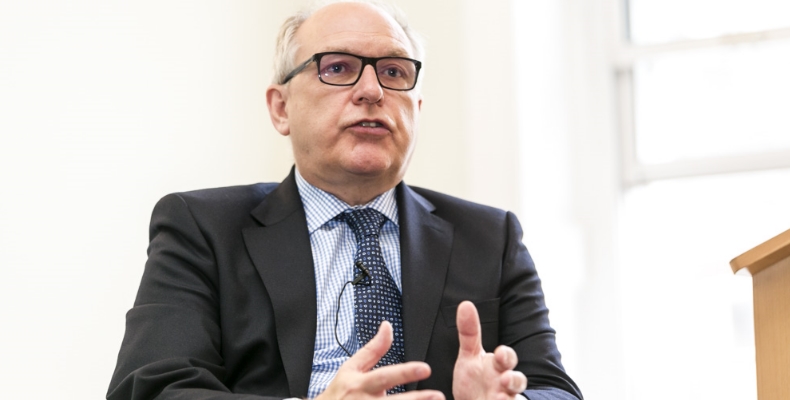
Martin Hatfull, International Public Affairs Director at Diageo said: “We still face unnecessarily restrictive trade regimes and punitive tariff regimes and quotas in a number of ASEAN markets.” Photo by Miles Willis
Hatfull explained that many British companies decided to invest in ASEAN after understanding the opportunities once they had started exporting there. But he said: “As ASEAN moves towards integration and the realisation of an economic community there is a lot that could be done in terms of speeding up customs processes and transshipments across borders. This would really help reduce costs for business,” he said.
However, he said the in principle EU-Vietnam FTA (free trade agreement), agreed earlier this year, would see the elimination of high tariffs there.
But he said: “it’s a very important region for us” because of “the reality of the scale of the market as it stands. The combination of growth prospects and demographics of the region make it very attractive for any consumer products company even when compared to favoured benchmarks like China or India.”
Michael Lawrence, CEO of Asia House, said: “There is a lack of understanding here in the UK about ASEAN as an investment destination. So there is still a marketing issue for ASEAN as a whole outside of the region,” he added.
“People are unaware of how they can grow and make money in the ASEAN bloc. There is a lack of education in the UK as to the opportunities,” agreed Richard Lilleystone, Chief Executive of Gazasia, a British alternative fuel company, which converts organic waste materials to decarbonising fuels (energy and vehicle fuel). Gazasia has bases in Malaysia and in the Philippines. “Both Malaysia and the Philippines have educated and IT-savvy populations. Having local partners when setting up in ASEAN was essential to understand the funding, regulatory and tax requirements,” he said.
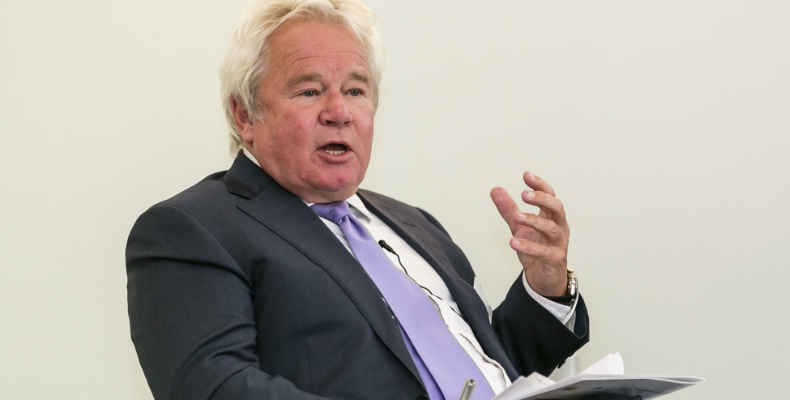
Richard Lilleystone, Chief Exeutive Gazasia, said: “Both Malaysia and the Philippines have educated and IT-savvy populations.” Photo by Miles Willis
“Without partners we would not stand a chance. The politics we learnt on the hoof. If we had gone cold we would have been in torn apart,” he said.
Nevertheless Britain receives half of all ASEAN investment in Europe and the Battersea Power Station development in central London is one such example.
The 42-acre development sat idle for 30 years before a consortium which comprised Malaysian real estate player S P Setia Berhad, Malaysian property group Sime Darby Property and Malaysia’s Employees Provident Fund, purchased it three years ago.
“Fantastically supported by CIMB Group now London is benefiting from an £8 billion development, with 600 affordable houses, 10,000 jobs and extension to the Northern Line,” said Simon Murphy, Deputy CEO and CFO at Battersea Power Station Development Co Ltd.
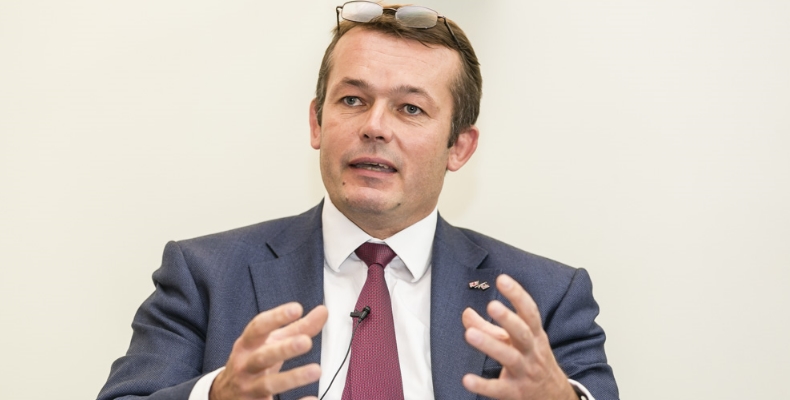
Simon Murphy, Deputy CEO and CFO of Battersea Power Station Development Co. Ltd., said: “The depth of liquidity of sterling that Malaysian investors could access was an issue.” Photo by Miles Willis
“This was something the UK appeared unable to do and international investors were able to do,” he said. “Investment is more than just the cheque book. They brought a vision which others didn’t get, the expertise to execute that vision, the energy to execute that vision and an approach to business that is different, a desire to be a good citizen of London and to work as a team. A lot of our shareholders have said ‘it’s because of our historic links to the UK we have come here. We could have gone anywhere.’”
He said the exchange rate with sterling was the one problem the ASEAN investors had faced. “The depth of liquidity pool of sterling that they could access was an issue. How to enhance that? Is it Islamic finance?” he asked.
Other than that the Malaysian investors faced no significant roadblocks, he said, as the UK was considered by ASEAN companies as an appealing place to invest.
So, to conclude, the UK needs to encourage ASEAN investment in more diverse sectors and more British businesses need to understand the opportunities Southeast Asia offers, even despite some of the difficulties in the region, some of which would be eased through greater integration.
To read all the other stories from the UK-ASEAN Dialogue click here.
Want to find our about the Belt and Road initiative and how UK businesses can benefit from China’s economic rise? Then don’t miss the World Chinese Economic Summit 10 to 12 November 2015 which is being held at venues across London, including The Savoy Hotel and Asia House. For more information click here.
